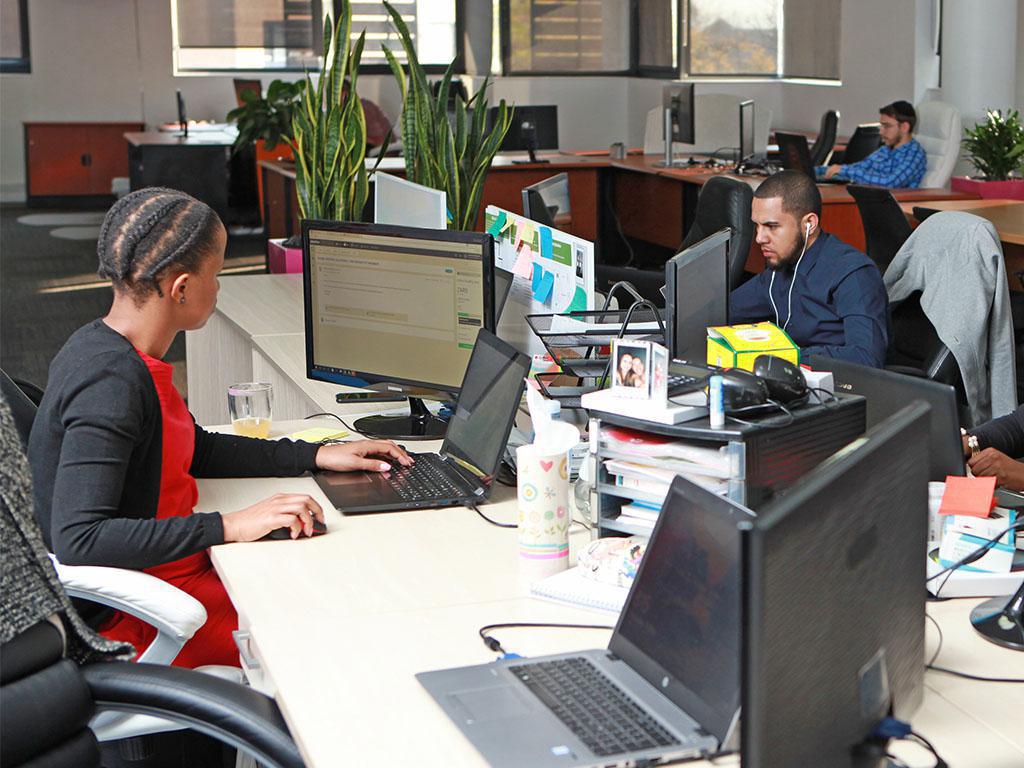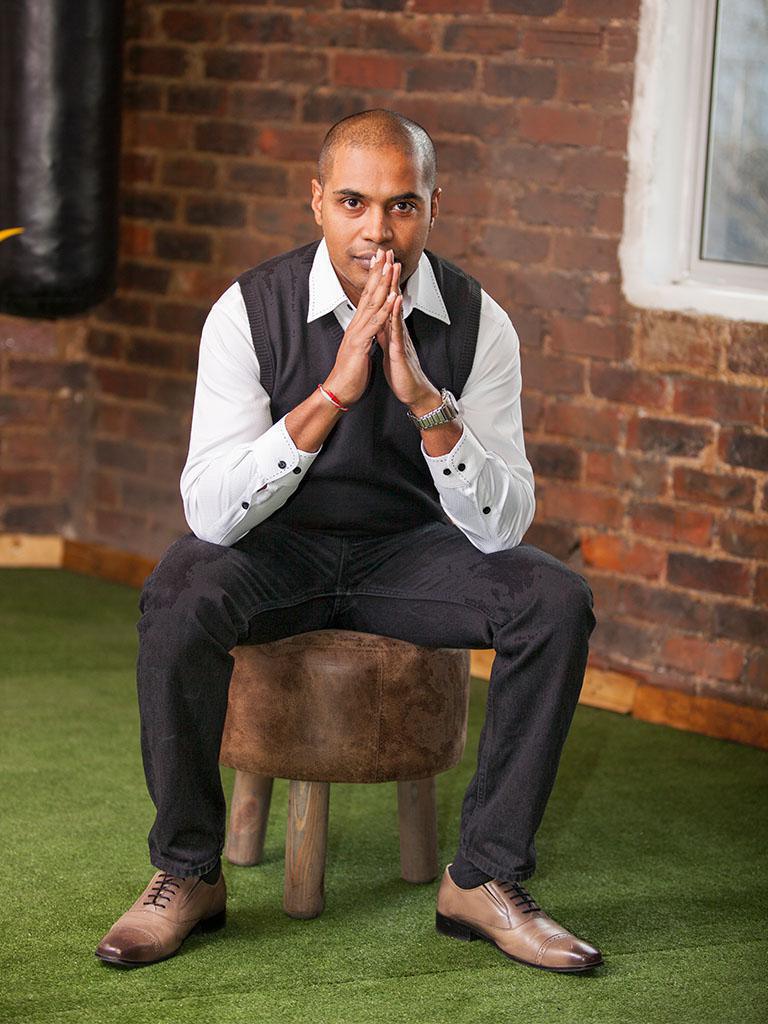Using super cyber intelligent technology for cybersecurity
In a modern world, shrouded in unceasing technological advancement, cybercrime has become a hovering black cloud. Nithen Naidoo, a Pretoria born and bred cyber security specialist, has taken on the figt against cyber thugs. Afer being actie for years in a field alled penetration estin, also known as ethical hacking, he saw a gap in the cyber market and established his own company called Snode, with reference to ‘Secure Node’.
Cyber policing
Snode is a cybersecurity company that leverages emerging technologies to solve cybercrime in the modern-day technology era. “It uses emerging technologies and concepts big data and artificiaintelligence to find innvatie ways to detect advanced forms of atack and proactiely defend businesses against them,” Naidoo says.He says there have been misconceptions in themarket that Snode is a cybersecurity technology solution, solely or the financial maret. “Snode is applicable to diferent markets not only as cybersecurity technology but also as cyber-intelligence technology.”Snode is characterised by three main features. These include taking disparate data across organisations and bringing it ogether in a single source of truth. “It can also do large scale. By large scale I mean petabyte level data fusion. Dealing with petabyte of data is cognitie overload for the human being (a petabyte is a unit of information equal o one thousand million bytes). “We use machine system analytics o take petabytes of data and we use machine assisted analytics o give you one or two pieces of data that would be important to you and your business at that particular poit in time.The third thing is we present this data interactiely so that you as a business owner or an analyst within a business can navigate through that data at various levels.”
Intelligence beyond policing
Naidoo says the use of their machinery goes way beyond cybersecurity. “If you think of the health care industry, there are multiple uses. “If there were to be a disease outbreak in Africa tomorrow and we have the data of all the hospitals around the continet, we would be able to predict the spread of the outbreak and use that data to allow people to respond and contain various sources of disease outbreaks proactiely.”
Having spent many years working in computer sciences, Naidoo has gathered sufficit knowledge and the needed experience to curb the surge of cybercrime, using cyber intelligence.“
I spent most of my career in a fieldcalled penetration esting and I lft tht with the vision to create a cybersecurity consulting ompany. Very early in my career my main job was to break into networks, computing ystems, certain types of technologies and internet banking. On the high-end of the scale, breaking into certain types of weapon systems that were designed, which leveraged computing sofare. “And everything from the mining industry and what controls the conveyor belts all the way to stock exchanges. I’ve been lucky enough to work in all those spheres.”When extraordinary doesn’t mean financialgain - expensive lessonsBut even with this much knowledge in his field, Naidoo sys his entrepreneurial journey has been an expensive one. Even though all of his prior businesses were highly profiable, he has lost a lot of that money. “I had three technologies that I had developed that I thought were amazing products which never went to market. They never saw the light of day, and all of those products cost me a lot of money even though it was bringing me the business. That sort of business with money coming in on the one side and going out the other.”He invested half a million rand in equipment to set up a cloud environment in the UK. “The idea was quite novel. You’d have a business in a box and it would be encrypted and all your data would be backed up in this cloud that was in the UK. The thing I never predicted was the kind of legalities ivolved in setting up partnships with large telecommunication ompanies to try and roll out this product that was really designed for the telecommunications indutry. We spent two years in design and development. And I spent two years with lawyers going through contracts at which point the contracts went nowhere. And that was a very expensive mistake.”He says he also made a lot of other mistakes and these were common mistakes novice entrepreneurs make because of the excitement. “When I left y job to start up my fist business, I had what I thought was a strategy which wasn’t a very good one. I can tell you in all honesty in the fist month I made a total of R3 000. This is coming from a salary of just under a million per annum. It was difficult, itas probably the most difficulthing I had to do in my life.”
A sold façade - utilising the Iternet
He adds that the Internet has sold him the façade of efortless freedom, which is not entiely true. “It does allow you to take your concept or your business idea and show it and share it with the world. And I think young entrepreneurs need to leverage that. They need to leverage social networks for marketing. Thy need to leverage e-commerce. They need to leverage the Internet and emerging technologies like Internet of things in cloud computing. ven in traditional kinds ofbusiness models. “Not only in cybersecurity are all of these technological trends relevant. They could be in every business, a component of technology, an innovation within echnology that could be conducive to a breakout business.”
The importance of entrepreneurial supervision
He says it is important for fledging businesses andentrepreneurs to have mentorship. “Like adult supervision, there are two ways to learn from your mistakes. You can learn from the mistakes of others or you can make all those mistakes through an intricate process and eventually progress. Learning from the mistakes of others and leveraging their wisdom is a far beter way to get your business off the gound quickly.”
Young entrepreneurs should not only seek out mentorship, but also speak to established entrepreneurs, actiely seeking and connecting with peoplewho have their own businesses and have discussions with them.
“I have found entrepreneurs in all walks of life are very keen to talk to me, to give me messages of encouragement, share their wisdom with me because they know the trials and tribulationsthat I have ahead and they know how important it is to have young entrepreneurs to work their way through this ecosystem.”
The matrimonial nature of business partnerships
He says finding the rigt partner, investor or employee should be approached like a marriage. “You need to partner and choose the right people. People, who share your mind space, share your passion and share your desire for what you want to achieve.” His relationship with his ivestors, the Hello group, has worked well because there is mutual respect between all parties. “But mot importantly because they share the same vision, which is more imperatie than anything else.”



